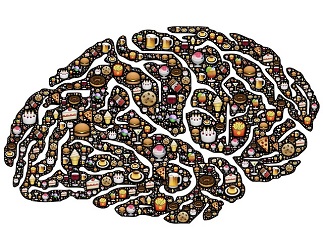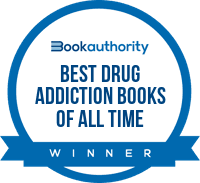People often pass off addictions to things other than drugs and alcohol, and perhaps gambling, as ‘not real’ addictions. Got a shopping addiction? Surely, you're just a selfish spendthrift.
Addicted to Facebook? The verdict: Egomaniac, or sad and lonely loser. Addicted to a relationship? “I think someone’s needy!”
People don't seem to treat every addiction with the same compassion or gravity. I really wish this type of stigma didn't exist -- you'll find out exactly why later on.
The public becomes even more skeptical when addictions are totally outlandish. Just look at the people featured on the TV show “My Strange Addiction”. It is easy to call someone who claims they’re addicted to drinking paint, sleeping with a hair-dryer, or snorting baby powder, a fake.
While I don’t know if all of the people on the TV show are genuine, many of them may well be addicted, no matter how bizarre and unlikely their addiction seems. But we must always have an open mind, and remember that our own experience of the world is never the same as anyone else’s. We shouldn’t judge people when we don’t know their backstory or how they feel.
Secondly, people who have not deeply researched the psycho-biology of addiction, have no right to claim that someone can’t possibly have an addiction to something that is not ‘inherently’ addictive.
Because there is a secret about addiction that barely anyone knows bar dedicated addiction scientists and some therapists, who deal with many types of addiction every day. Anything can be addicting if it gets your dopamine system into overdrive and you don’t have the genetic and behavioural ability to say “no” to that thing.
A real addiction is relying on something (or someone) to meet your emotional, and/or physical, needs. When you’re going through a stressful time, physically or emotionally, what do you want most of all? If there are no viable solutions, then most of us want a hug and reassurance.
Any substance or behaviour, no matter what it is, can potentially give you that “cuddle” you’re so desperate for, and can make you feel “better” in the short-term, wiping your cares away.
And, crucially, the first taste of anything that makes you feel unexpectedly good, particularly at a difficult time, is something that your brain will not only take note of, but also seek out again and again.
Your brain does not differentiate between things that are “supposed” to be addictive and the things that make you, as an individual, crave them.
It doesn’t matter to your brain that “cigarettes and cocaine” top the charts as all-time addictive substances. All it knows is that something gave you comfort when you needed it – and it has the urge to repeat that experience all the time.
It makes matters worse if you happen to have a compromised dopamine system (which plays out as an "addictive personality"), because that can really push you into addiction rather than overuse. The two states look very similar from the outside, but when a true addiction manifests, the addicted person will continue using their “comfort blanket” regardless of the consequences.
Anything can become mind-altering and addictive, if it has given you a much-needed lift or comfort at a difficult time, whether that is alcohol, crack, video games, or sleeping with a hairdryer.
If you are concerned that you seem to be addicted to something that seems a little “odd”, and haven’t known where to turn to, please understand that us therapists do deal with a great variety of unusual addictions every day. We don’t judge – we just help. And the good news is that no matter how “strange” your addiction may be, you can find recovery.
by Beth Burgess, Therapist and award-winning author of The Recovery Formula, The Happy Addict, and Instant Wisdom.





